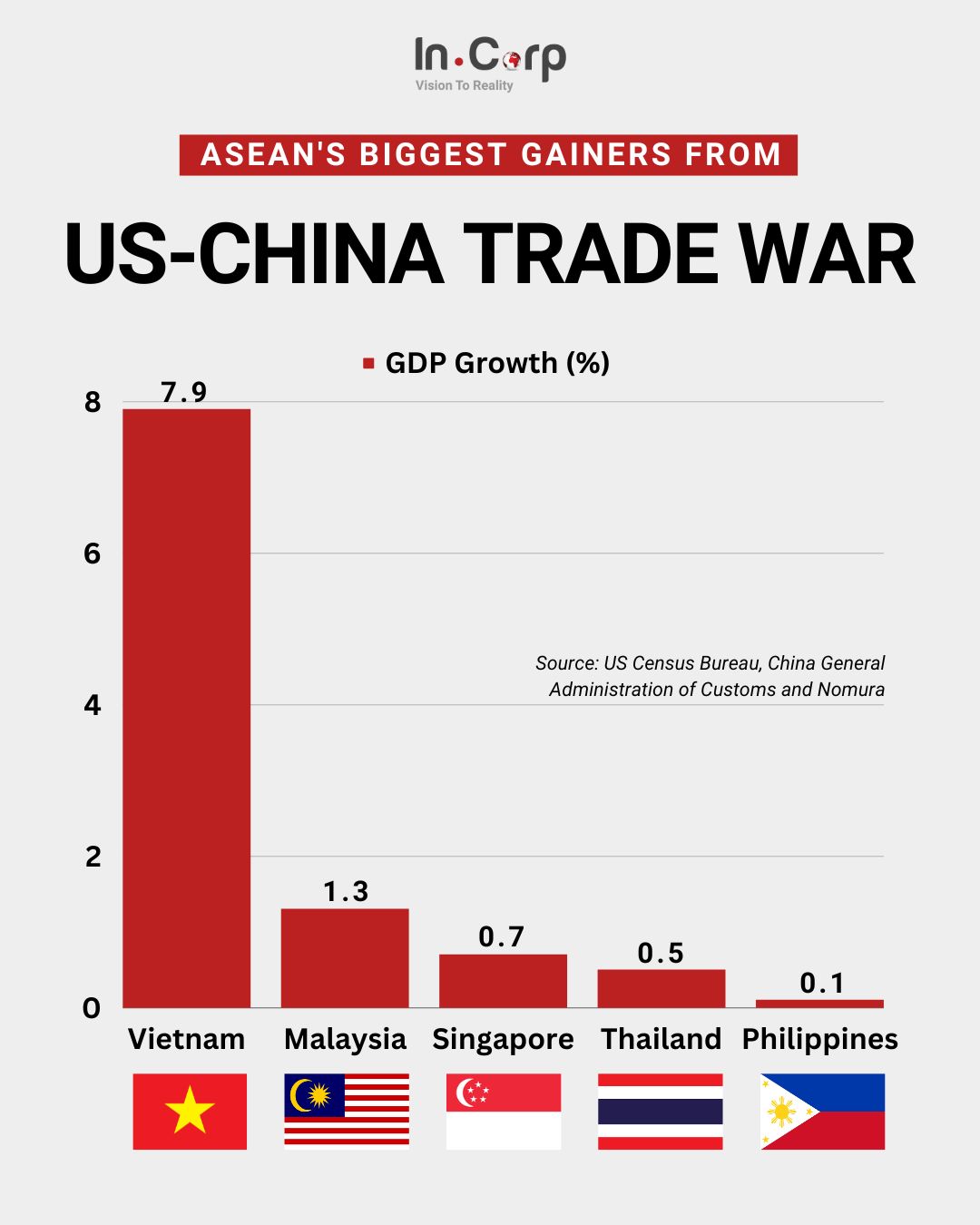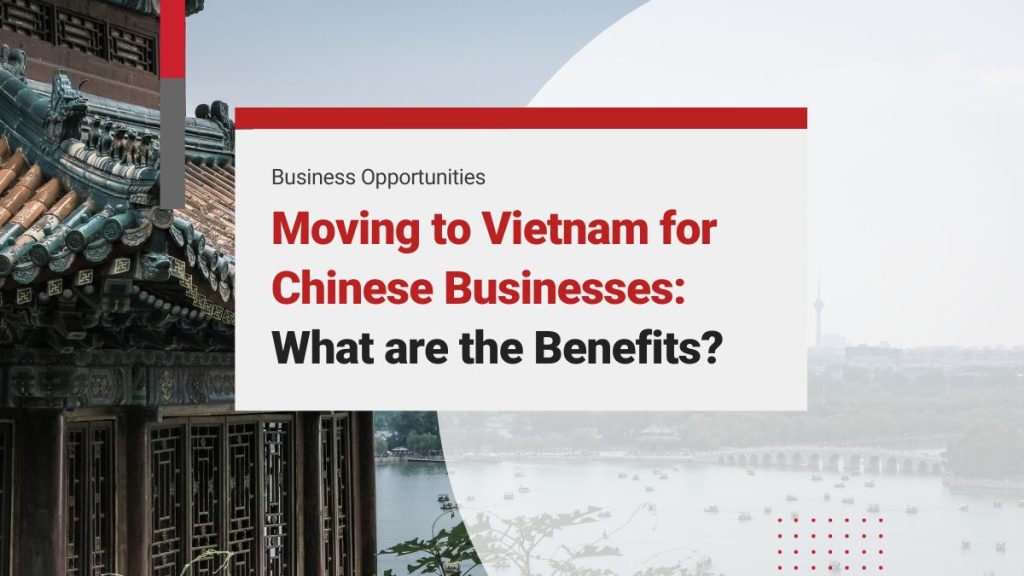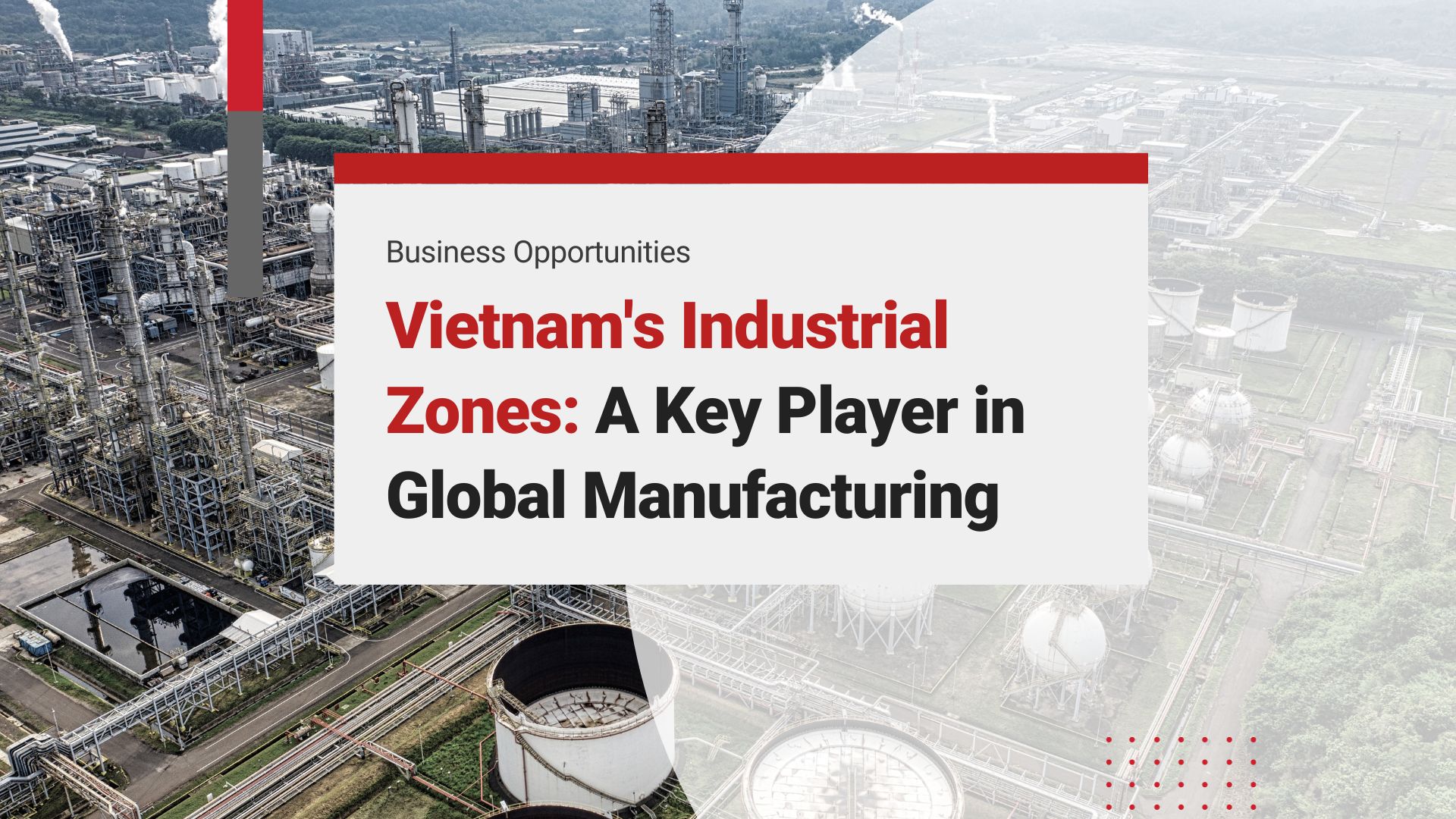In recent years, an increasing number of Chinese businesses have been setting their sights on the vibrant and dynamic market of Vietnam. As the global economic landscape continues to evolve, this strategic move has captured the attention of entrepreneurs, investors, and industry experts alike. Many of these enterprises are also exploring company incorporation in Vietnam to establish a long-term presence and tap into its growing economic potential.
This article elaborates on the reasons many Chinese businesses have relocated their factories to Vietnam and how moving to Vietnam can be beneficial for them.
Following US-China Trade War
In July 2018, President Donald Trump of the United States claimed China’s unfair trade practices and started imposing shocking tariffs on China imports. So far, tariffs incurred on Chinese products have reached a whopping US$250 billion. As a result, companies of all sizes are shifting their production centers out of China to countries with matching infrastructure, technology, and human resources like Vietnam.
Many trade experts stated that this US-China trade war has shown no sign of improving anytime soon, and has been affecting economies around the world. However, for Vietnam, the US-China war has brought a positive effect on the country’s economy. According to Japanese investment bank Nomura, Vietnam is the biggest benefactor in this dispute with its economy rising by 7.9%. Vietnam’s GDP has also surged by 6.79% in the Q1 of 2019.

Since China is not able to export its products to the U.S., many foreign investors, especially Chinese have flocked to Vietnam and increased their manufacturing capacity to export goods to the U.S.
Moving Your Business to Vietnam: Why Do Chinese Should?
Vietnam has become the favorite destination for investors switching their production from China due to China’s tariff threats and continuously increasing labor costs. Owing to the additional gain of imported goods caused by U.S. tariffs on Chinese products, especially electronics, this multinational shift of production to Vietnam is inevitable.
Read Related: Setting Up a Manufacturing Company in Vietnam: Benefits, Industries, Procedure
The apparel industry in Vietnam has the best performance due to the moving operations of textile companies to Vietnam from China. Though the global economy has significantly slowed down, the relocation of China companies to Vietnam will not stop anytime soon.
Positive Relationship between Vietnam and the US
According to a forecast done by Bloomberg, Vietnam’s exports to the US are expected to hike further to US$69 billion in 2019 – a significant growth as compared to US$62 billion in 2018 after signing the total bilateral trade.
Therefore, Vietnam and the U.S. are maintaining a positive economic relationship. In the last ten years, Vietnam’s trade surplus with the United States has experienced significant growth, surging from US$39 billion in 2012 to an impressive US$94.9 billion by 2022. With the underway trade war that is speeding up, more and more Chinese factories (particularly light and manufacturing industries) see this as the best time to move out of the more expensive China.
Not long ago, American company Cooper Tire and Rubber Co and Sailun Vietnam Co Ltd built a tire factory close to Saigon in the form of a joint venture; and the US company Key Tronic Corporations also rented a manufacturing facility around Da Nang.
Investing in Vietnam? Check out InCorp Vietnam’s Incorporation Services
Favorable Trade Agreements between Vietnam and China
In 2010, Vietnam was a significant participant in the ASEAN-China Free Trade Agreement (ACFTA) because it is an Association of Southeast Asian Nations (ASEAN) member. It has drastically lowered tariffs on a variety of products, fostering more seamless international trade and economic integration.
China-Vietnam economic and commercial cooperation has maintained strong momentum despite the weak global economy. In the first five months of the year, statistics showed that commerce between China and Vietnam accounted for approximately one-fourth of trade between China and all of ASEAN.
A free trade agreement (FTA) involving 15 countries from the Asia-Pacific region and five of ASEAN’s main economic partners is known as the Regional Comprehensive Economic Partnership (RCEP). The RCEP aims to lower trade restrictions, encourage economic cooperation, and ease the movement of products, services, investments, and technology between China and Vietnam.
Related Read: All of Vietnam’s 16 Currently Active Free Trade Agreements
Vietnam’s Unceasing Infrastructure Development
The Vietnamese government makes infrastructure development in the country their very first priority to keep up with its economic growth.
Close to 99% of the Vietnamese population have electricity access and many real estate, ports, bridges, roads, and highways, as well as airports are currently underway to being built.
Stable Government and Cheap Wages
Compared to many neighboring countries in the Asian region, Vietnam is perceived to have advantages such as a relatively stable government and an inexpensive yet high-skilled workforce.
This is especially important for the labor-intensive manufacturing sector, which is why many China businesses have relocated their production to Vietnam. In 2010, Vietnam became the leading manufacturing country for Nike shoes, surpassing China for the first time.
Read More: China +1 Strategy in Vietnam: An Overview for Chinese Investors

clients worldwide

professional staff

incorporated entities in 10 years

compliance transactions yearly






